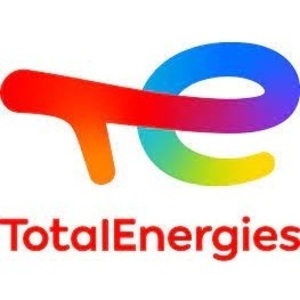TotalEnergies, a pioneer in SAF and committed to the decarbonization of air transport

June 17, 2025
BY TotalEnergies
TotalEnergies is working towards the decarbonization of air transportation, with the production and distribution to its customers of sustainable aviation fuel (SAF). As from 2028, the company will be able to produce more than half a million tons of SAF a year to cover the increase in the European SAF blending mandate, set at 6% for 2030.
TotalEnergies will be able to supply SAF more than 10% of the jet fuel volumes it will market in Europe, ahead of the European mandate set at 6% in 2030.
"TotalEnergies is taking action to meet the strong demand from the aviation industry to reduce its carbon footprint. Sustainable aviation fuels are essential to bring the air industry’s CO2 emissions down immediately. Their development is fully aligned with our approach to get to net zero, together with society," said Patrick Pouyanné, chairman and CEO of TotalEnergies. “For ten years, we have been pioneering and investing in biorefineries and developing coprocessing in our refineries.”
Advertisement
Advertisement
TotalEnergies, pioneering SAF production
- The Grandpuits biorefinery: Thanks to a €500 million investment, TotalEnergies transforms its site into a zero-crude platform, including a biorefinery with a production capacity of 230,000 tons a year of SAF in 2026. TotalEnergies has joined force with SARIA, the European leader in the collection and recovery of organic materials, which will supply the majority of the feedstock supply.
- The La Mède biorefinery: This year, La Mède will produce 15,000 tons of SAF for distribution to airports in the south of France.
- The Normandy refinery: TotalEnergies has begun coprocessing SAF at its Normandy platform. Coprocessing involves the treatment of both fossil jet fuel and biomass in a standard refining unit. The site’s annual production capacity is 160,000 tons.
- The Antwerp refinery in Belgium: An initial project to coprocess 50,000 tons a year of SAF was launched this year. Annual production capacity will subsequently be increased to 80,000 tons a year.
- The Leuna refinery in Germany: A coprocessing project for 50,000 tons a year is planned for 2026.
TotalEnergies, supplying SAF to customers in the air industry
TotalEnergies supplies aviation fuels including SAF, in line with blending mandates and the needs of its customers. Those customers include several airlines:
- Air France-KLM, with whom the Company has signed a major deal to deliver up to 1.5 million tons of SAF over ten years. This is one of the Group’s largest SAF supply contracts.
- Volotea, which has also signed to buy SAF from TotalEnergies until 2029, in order to reduce the emissions of its flights out of several French airports.
TotalEnergies also supplies SAF-blended aviation fuel to several French airports, including Bordeaux, Toulouse, Paris-Le Bourget, Clermont-Ferrand and Saint-Nazaire.
Advertisement
Advertisement
TotalEnergies, a partner committed to SAF research
TotalEnergies is also forging partnerships with aerospace groups to accelerate the sector’s decarbonization. Those partnerships are playing a critical role in understanding the impact of sustainable aviation fuel composition on aircraft, especially for blends of over 50%. They include:
- A partnership with Airbus, signed in 2024, to supply over half the company’s needs in Europe, and conduct a shared R&D program to develop fully sustainable fuels.
- A partnership with Safran, begun in 2021, that led to the formulation of a SAF that was completely compatible with current aircraft and was used to power a flight by a military helicopter in February 2023.
TotalEnergies is also stepping up its R&D effort, especially in feedstock, which remains one of the challenges to increasing SAF production. The Solaize research center in Lyon has specialist teams coordinating this work.
Related Stories
CountryMark on July 22 celebrated the completion of more than $100 million in upgrades at its refinery in Indiana, including those related to soybean oil storage. The facility produces renewable diesel via coprocessing technology.
ATOBA Energy and Air Moana are partnering to implement scalable solutions for the supply of SAF. The collaboration aims to ensure long-term SAF availability while supporting local initiatives to develop sustainable fuel production in Tahiti.
While final IRS guidance is still pending, the foundation of the 45Z program is well defined. Clean fuel producers should no longer be waiting; they can now move forward with critical planning and preparation, according to EcoEngineers.
Neste Corp. on July 24 released second quarter results, reporting record quarterly renewable product sales volumes despite weaker margins. SAF sales were up nearly 80% when compared to the first quarter of 2025.
Valero Energy Corp. on July 24 released second quarter results, reporting a profitable three-month period for its ethanol segment. The renewable diesel segment posted a loss, but the company’s new sustainable aviation fuel (SAF) unit operated well.
Upcoming Events










